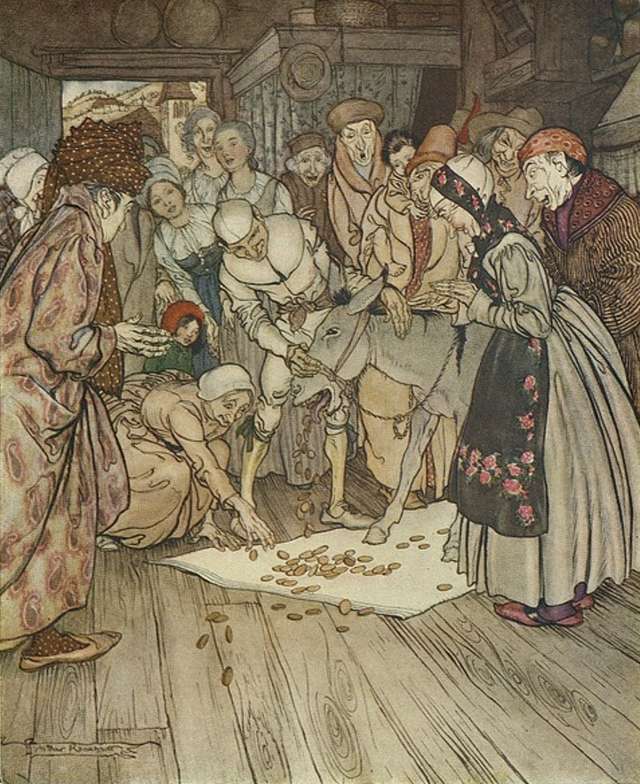This popular fairy tale is most known from Brothers Grimm’s collection. It is about three brothers who left home to learn their professions and earn magic gifts. While the first two brothers lost their gifts the third one saved his own present and regained theirs, so happy ending is inevitable… But this on the surface simple fairy tale, like most others, actually offers much more. It's also a story about trust, forgiving, growing up and taking responsibilities

As you may expect, I will also provide a few speculations:
1. Three brothers and three magic objects represent three aspects of the materialistic approach to wish fulfillment. First is momentary (eating as much as somebody can - given by the wishing table), second permanently (having an unlimited source of money - given by donkey) and the third to protect the first two (punish everybody who might try taking your stuff - given by a cudgel). We can find similarities with Jack and Beanstalk (full pockets of money, a hen laying golden eggs and singing harp), but there the third object (harp) wasn’t meant to protect (it was probably the step forward from material world and sign of Jack’s intellectual prevail over giant).
2. There are numerous versions of The Wishing Table (even the Grimm’s collection has at least three different titles known): in Basile’s Pentamerone (The Tale of the Ogre) there was only one son, who served for an ogre, in Asbjornsen and Moe’s version there was a ram instead of a donkey and North Wind instead of the ogre, and there is also version from the Philippines where we can find three magic gifts (goat producing silver coins, a net always full of fish and magic jar always full of rice) given by a magic tree and protected by fourth (it's stick again)…
3. In Grimm’s Table-Be-Set, Gold-Donkey, and Cudgel-out-of-the-Sack we can also find one very popular fairy tale motif: father incapable to protect the child. This motif if very noticeable in The Sleeping Beauty where father ordered to destroy all spinning wheels but failed, but it can be found also in Rumpelstitskin where father with his big mouth pushed his daughter into big danger. Something similar happened in The Wishing Table, where father decided to believe his goat instead of his sons.
I guess one of most important messages from fairy tales for children is: soon or later there will come time to leave your home and take your chances.
Don’t you think so?

Write a comment